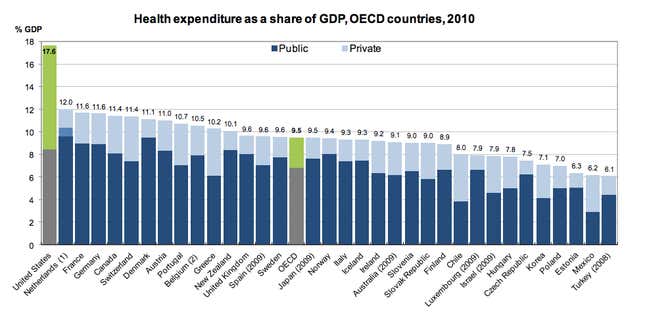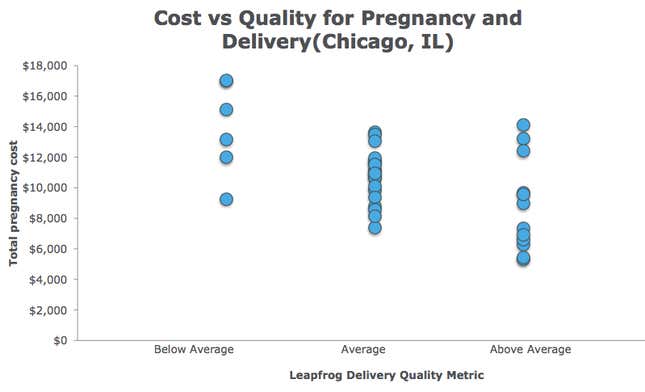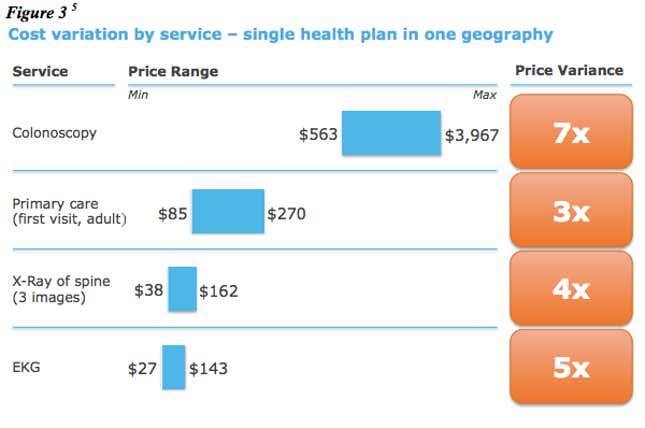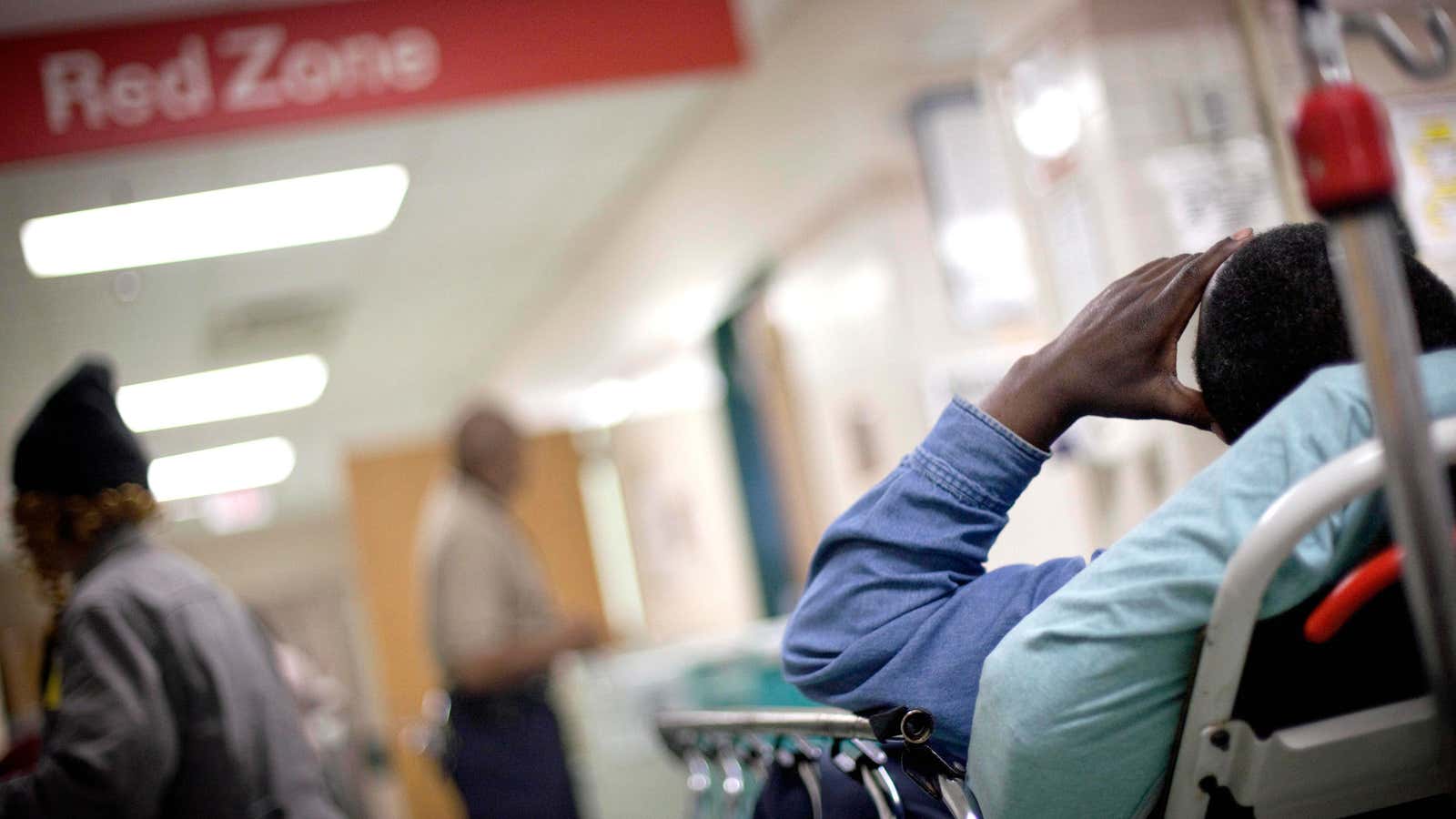The problem is that US health care costs too much. The solution could be telling people what they’re paying for, if only the government would come clean.
We know that Americans spend more money on health care than anyone else:

Part of the reason is that most Americans don’t pay for their health care directly. Insurers or the government pick up the tab, so consumers can’t really compare prices or quality and competing providers don’t really compete. Many consumers assume that paying more would be paying for the best, but studies show no correlation between the cost and quality of basic procedures, like childbirth. Indeed, some of the most expensive care is the worst, and vice versa:

That chart is from a young San Francisco company called Castlight, a big data firm that launched a service to help big employers, from companies like Safeway to the state of Indiana, cut health insurance costs. Castlight uses each employer’s historical data on insurance claims and payments to develop price and quality comparisons for local health-care providers, from physicians to pharmacists. That data is provided to people on the insurance plan, who use web and mobile apps to find the best combination of cost and quality for their needs. That can mean big savings if the cost of a procedure like a colonoscopy varies by as much as a factor of seven:

Right now, 4 million people use Castlight’s service, and the company is set to grow. But it can do better, according to its CEO and co-founder, Dr. Giovanni Colella, if it gets more data from the government.
The 2010 US health care reform, a.k.a. Obamacare, required the Department of Health and Human Services to make public certain data on how much people have paid for various medical procedures. The department is six months late in doing so. And only 12 states maintain their own public databases showing price comparisons. Most allow health-care providers to enter contracts with insurance companies to keep their costs secret.
Perhaps most importantly, though, Castlight wants access to the vast repository of data in Medicare, the government health-insurance program for senior citizens. Today, Colella told the lawmakers responsible for Medicare as much at a public hearing of the US Senate’s finance committee. The committee chairman, Max Baucus, asked to hear the argument against Medicare releasing that data; no one had an answer.
“The providers don’t want that,” Colella told Quartz after the hearing. The cozy relationship between American physicians and Medicare administrators gives them “incredible influence” over what is released, he said. The reason for their resistance is obvious: More transparency about what medical care costs would mean lower billing.
The good news for American consumers and taxpayers is that the country’s health-care inflation is already coming under control. Today, the government reported that health-care prices fell for the first time in decades, and PricewaterhouseCoopers released a report suggesting that the trend will continue. The main reason is that employers, in an attempt to keep down health insurance costs, have been passing more of the costs on to consumers (in the form of higher premiums and deductibles.) That’s made consumers look for cheaper services. But to keep that trend going consumers will need a better idea of how to spend their money most efficiently—and companies like Castlight may be best positioned to do it.
